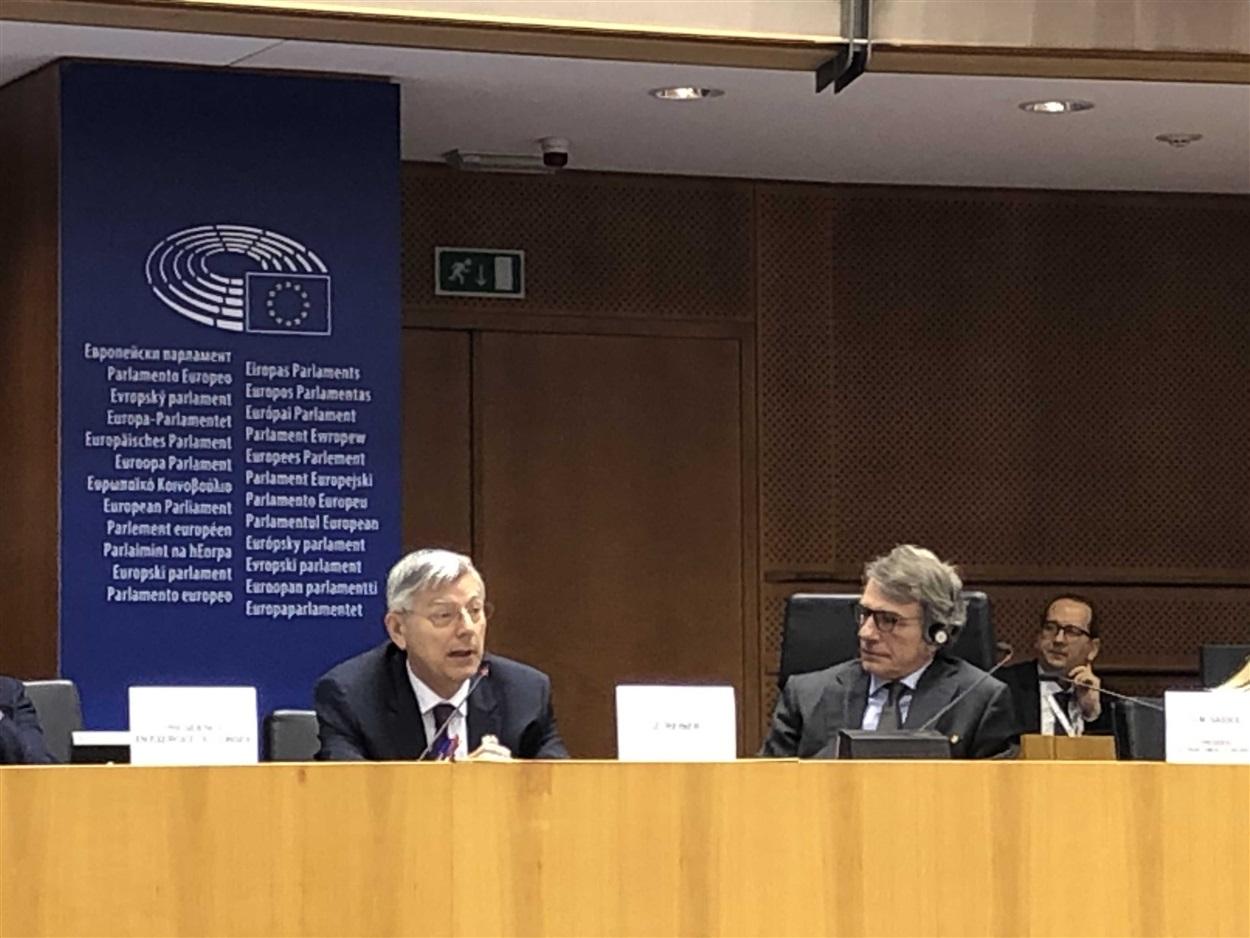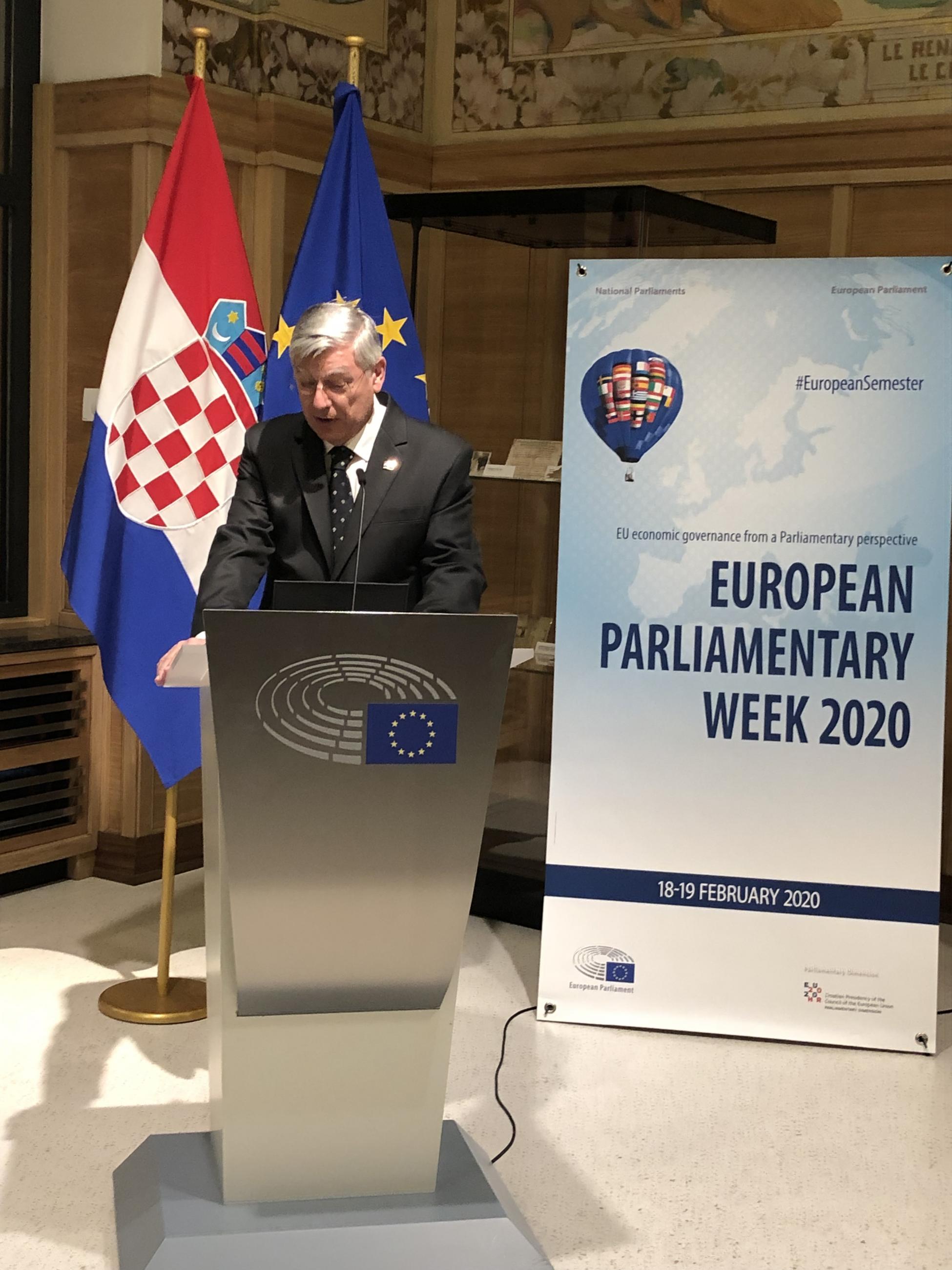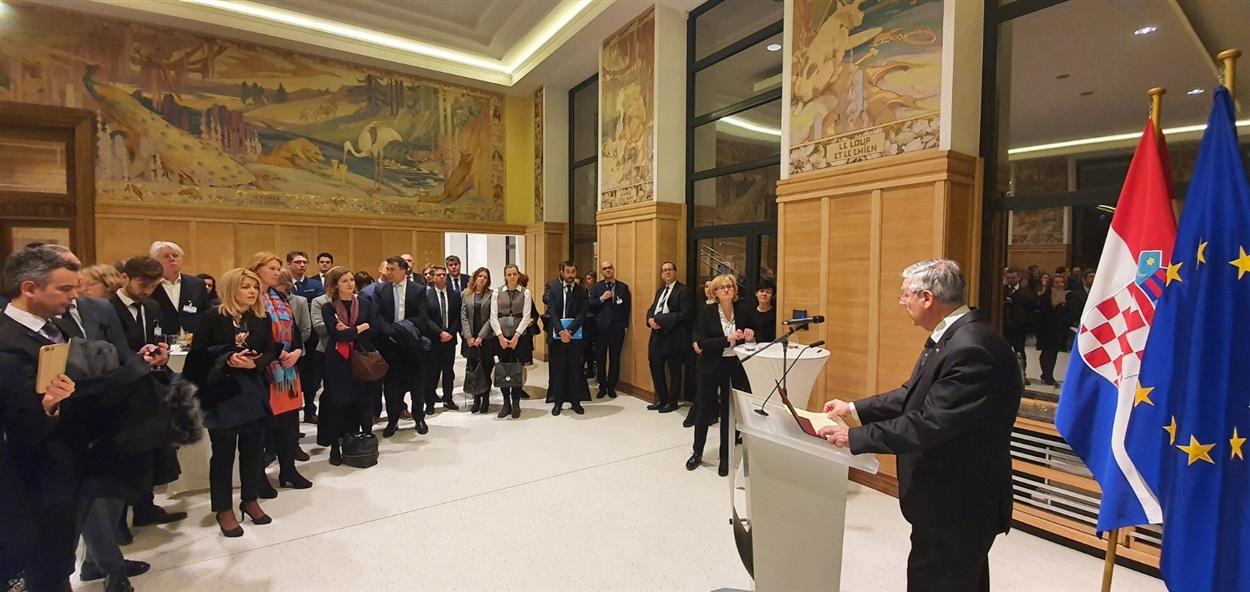
Zagreb - Deputy Parliament Speaker Željko Reiner on Tuesday and Wednesday participated in the Interparliamentary Conference on Stability, Economic Coordination and Governance in the European Union in Brussels, as part of European Parliamentary Week.
Reiner addressed the conference on the topic "Becoming a global leader in combating climate change: What role for EU economic, budgetary and social policies?"
Addressing the press, Reiner underscored the importance of the mechanism for a just transition that needs to assist poorer member states in their transition to a fossil-fuel-free economy.
On the path to achieving the objectives of climate neutrality "not all countries are starting from the same position, and that also costs quite a lot, hence it is essential to assist those (countries) that are starting from a more unfavourable situation," said Reiner.
The European Commission has proposed a Just Transition Fund and a budget of €7.5 billion of fresh money for the next seven-year budget, which should generate about €100 billion in investments.
In his presentation, Reiner underscored that climate change is one of the greatest challenges the EU was faced with today. Emitting 10% of global emissions of carbon dioxide, the EU has a responsibility to become a global leader in combating climate change through the energy transition, he said.
Reiner underscored that Croatia has recognised the importance of the EU's Green Deal and that its objectives have for the most part been incorporated in Croatia's energy development strategy for the period until 2030 and the outlook for the period until 2050 and the integrated national energy and climate plan for the period until 2030.
Reiner added that Croatia is above the EU average with regard to the share of renewable energy and CO2 emissions per capita.
Croatia currently meets 28% of its energy needs with renewable energy sources, which is better than the set objective of 20% by 2020 and is the forerunner in the EU, Reiner said.
Croatia's plans take into account the economic and social aspects, including the thing that concerns citizens the most - costs, he said.
In that regard, he emphasised that a special progamme would be prepared with measures for energy-poor households so that their costs were permanently reduced.

